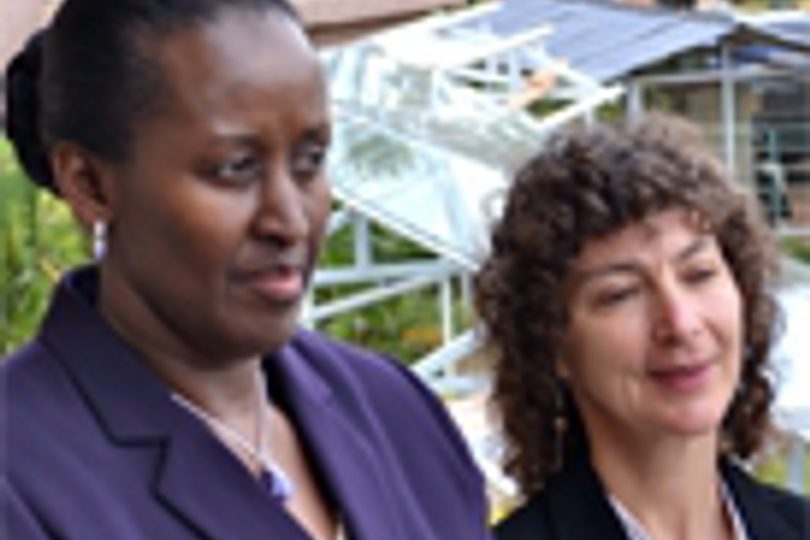
A wide range of perspectives on the intersection of women's rights and poverty were analysed at a groundbreaking conference in Rwanda last week.
The conference, ‘Women and Poverty: A Human Rights Approach', was held in Kigali from April 28-30 and shone a spotlight on the human rights violations suffered by women living in poverty. Organised by the Oxford Martin School's Programme on Human Rights for Future Generations and the Oxford Human Rights Hub, the event featured speakers from around the world and used a variety of contexts to examine the topic, from legal systems, healthcare and migration to through to food security, land ownership and cultural influences.
The conference was held in partnership with Professor Evance Kalula, of the University of Cape Town, and Dr Emmanuel Ugirashebuja, Judge of the East Africa Court of Justice and Dean of the Law School at the University of Rwanda, and with the support of the Chief Justice Sam Rugege, Chief Justice of Rwanda. It was officially opened by the First Lady of Rwanda, Her Excellency, Mrs Jeannette Kagame. She said poverty amongst women had been further perpetuated in the aftermath of the 1994 genocide, but that radical change had since taken place in the country.
"With a population that is 52 per cent female, freeing the productive energies of women was fundamental to the much-needed transformation of Rwanda," said Mrs Kagame. "There was no alternative: we had just emerged from genocide. And so women became a powerful force for change, from the smallest village council to the highest tiers of government. It became, and still is, a constitutional requirement to have 30 per cent women in decision-making positions in the public sector."
In her session, Professor Sandra Fredman, Co-Director of the Oxford Martin School's Programme on Human Rights for Future Generations, said women's poverty had to be considered as an issue of law, not merely one of altruistic ambition or of charity. She explained that women suffered a number of rights violations when it came to education and the right to work, and that these were often inter-locked with factors such as violence, early marriage and maternal mortality.
Visit the Oxford Human Rights Hub blog to find out more about the conference. You can also listen to audio recordings of the sessions.